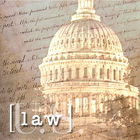
|
ELECTRONIC VOTING MACHINES FAIL IN PRIMARIES 5 March 2004 As the United States shifts as much as 20% of its balloting devices to electronic voting systems, new doubts arise about the integrity, security and fairness of the systems being implemented. In the "Super Tuesday" primary vote across 10 states, serious glitches occurred, erasing and preventing votes: 10% of machines in San Diego county experienced technical problems; 1 in six voters in Alameda county were turned away by machine glitches. Walden O'Dell, CEO of Diebold, which manufactures the most widely used electronic balloting machines, has declared his personal partisan allegiance, is an active backer of the Republican Party, and even expressed his desire to "deliver... electoral votes to the president" in 2004. Diebold is a privately owned corporation and therefore keeps its records and its technology private as well. They have actively sought to conceal the software used in programming the machines from public or regulatory scrutiny, even where testing has found serious security failures or mechanical error and where the government needs to order improvements. After close Senate races in Georgia and Nebraska, which resulted in surprise victories for Republican candidates over popular Democrats, Diebold came under official scrutiny for serious conflicts of interest regarding its role in balloting, its CEO's strong political affiliations and its secrecy. The machines are still not subject to direct public scrutiny and produce no paper ballot, rendering any regulation or confirmation of election counts virtually impossible. According to MotherJones:
Researchers at Johns Hopkins and Rice University found that hackers could use relatively unsophisticated methods to enter balloting systems, modify actual votes, and leave no trace whatsoever. According to Bev Harris, the electronic system "doesn't keep any record of anything in the audit trail when you're in this back door", adding that a hacker can manipulate the system through the "front door" and then go back and erase the trail through the "back door". Current legislation before the House of Representatives (HR-2239) would require all electronic machines to produce a paper ballot by this November's national elections. The Senate, however, has offered no such bill: two bills currently pending would delay the implementation of a voter verified paper trail until after the 2004 elections.
Resources... |
||||||
|
|||||||


